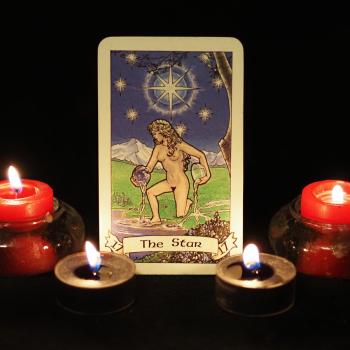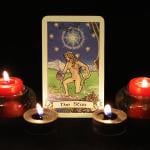Imagine, if you will, a conclave of cats gathered to discuss and debate the true nature of humans.
It wouldn’t be a useless gathering – not like say, a conclave of ants. Cats know a thing or two about humans. Some of this comes from their powers of observation, but most of it is because many cats live in relationship with humans. At the end of the day, though, the conclave proceedings would tell us more about how the cats see themselves than about the true nature of humans.
It is much the same when we humans discuss and debate the true nature of the Gods.
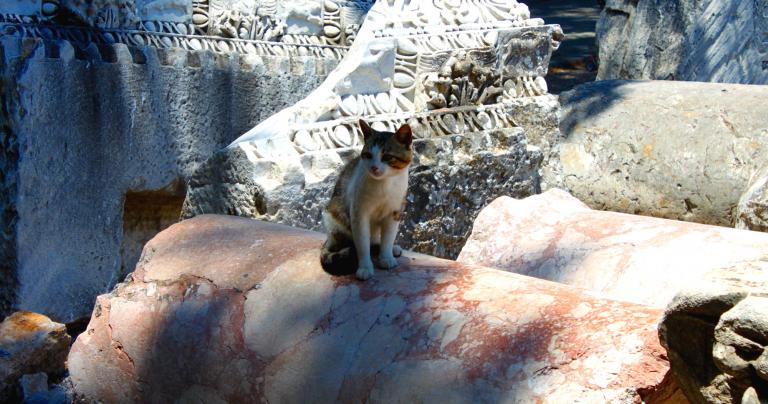
Last week fellow Patheos Pagan blogger Mat Auryn had a Facebook post where he listed 13 different deities from 13 different cultures who are all “the Goddess and consciousness of the Earth itself” – Gaia from the Greeks, Terra from the Romans, Pachamama from the Andeans, and so on. Then he summarized some of the complaints he’s received:
Staunch Hard Polytheists: No two gods are the same. They’re each individuals. There is no synchronization. You can’t compare or conflate deities of different cultures. None of them are the same on any level. They aren’t the same beings through different cultural lenses.
The “staunch hard polytheists” Mat has encountered are mistaken. If there is one deity who is clearly universal, it is the Earth Mother. All life comes from Her.
Beyond Her, though, we often find similar deities performing similar functions in different cultures. Sometimes they’re different aspects of the same God. Other times they’re separate beings.
Last year someone asked me if the Hindu deity Pashupati is the same God as Cernunnos. That post is worth re-reading – its main argument is that we can never be completely sure, and we’re usually better off understanding and relating to deities in the context of their root culture, rather than trying to combine and conflate them to make them more familiar to us.
At the same time, Gods can be multiple: Athena Parthenos, Athena Nike, and Athena Polias were and are understood differently, but all are Athena. And Serapis is the syncretism of Osiris and Apis. His syncretism may have been politically motivated, but He was actively worshipped for 700 years.
Like the conclave of cats, the reactions of contemporary Pagans to multiplicity and syncretism says more about us than it does about the Gods.
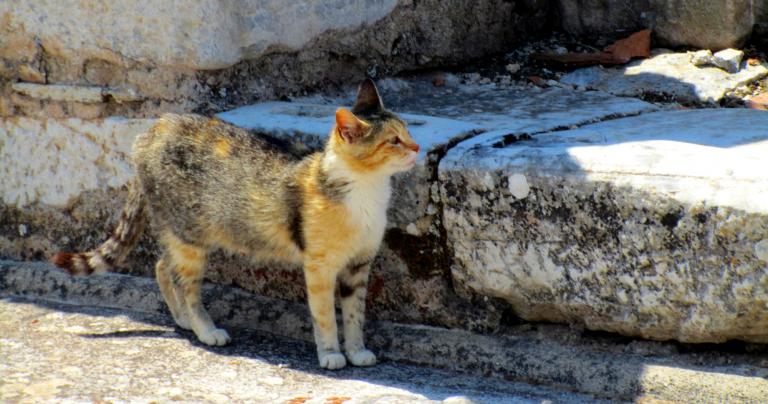
The problems of soft polytheism
Soft polytheism is the idea that all Gods are aspects of one God. Sometimes this is expressed as “all Gods are one God and all Goddesses are one Goddess.” Whether this means there are ultimately one deity or two is rarely discussed.
Some argue that soft polytheism isn’t really polytheism at all – it’s either monotheism or duotheism.
I’m a hard polytheist in part because the literary and historical records make it clear that’s how our ancient ancestors saw the Gods, but mainly because that’s how I’ve experienced Them. If I encounter beings who appear distinct and individual to me, it follows that I should conceive of Them and relate to Them as though They are individuals, even if I can never be completely sure.
While an argument can be made for soft polytheism, many people who advocate for it do so because they have yet to challenge the foundational assumptions of the Christian-dominated mainstream society, which insists there is only one God. And so they bring monotheist assumptions into a polytheist religion.
The other problem with soft polytheism is that it is often a Joseph Campbell-ish attempt at universalizing everything. Like Julius Caesar assuming that the Celts who worshipped Lugh were really worshipping Mercury, soft polytheists interpret different Gods and different religions through the lens of their own religion. In doing so, they remove them from their cultural context and they strip away what makes them unique and sacred.
Soft polytheism tells us more about how we think than it tells us about the nature of the Gods.
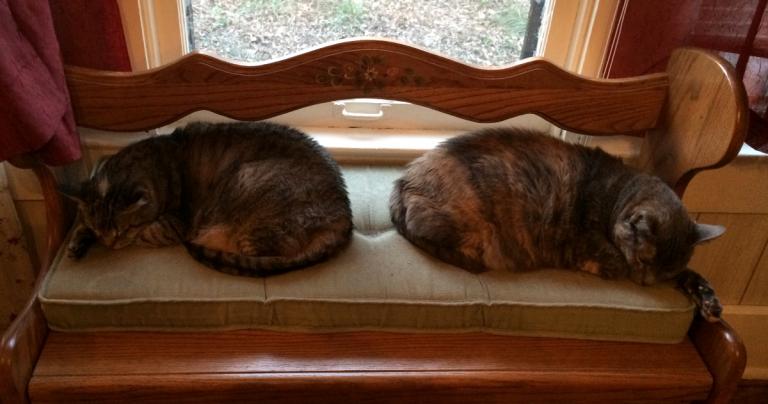
Our problems with multiplicity and syncretism
Not all of the cats at this conclave are soft polytheists. Some are hard polytheists.
I freely admit that multiplicity is complicated. I think I understand it better than I did three years ago when I wrote this, because I’ve been working with the combination of deities and places. I’m now 99% sure Cernunnos Denton is a real epithet of Cernunnos. Modern Paganism is a living religion(s).
Syncretism is less complicated, but also less common. The best example I have is Herne, who began as a possibly-historical English royal gamekeeper, and was later syncretized with Cernunnos, Pan, and Woden.
We often reject (or simply ignore) multiplicity and syncretism in part because they’re difficult to comprehend. But we also reject them because they conflict with the mainstream society’s emphasis on the primacy of the individual.
If the Gods can syncretize, then perhaps so can we. And if we can syncretize, then we might lose some of our individuality. More relevantly, we might discover that families and tribes and communities and nations aren’t just collections of independent individuals, they’re living entities with their own identity and sovereignty.
And if these group are living entities, then we have real obligations to persons other than ourselves.
For a culture that worships individualism and the absolute autonomy of the individual, that’s a very scary thing.
The cats who reject multiplicity and syncretism are telling us a lot more about themselves than they’re telling us about the Gods.
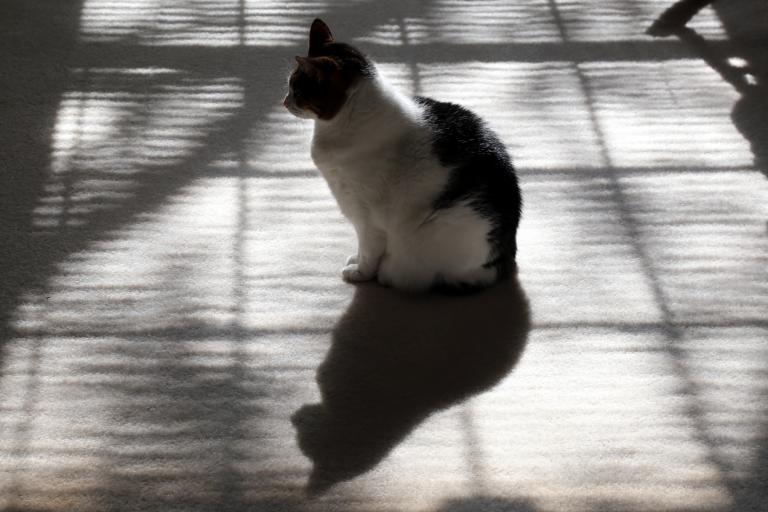
The true nature of the Gods remains a mystery
I believe what I believe about the Gods because it’s the best explanation I’ve found for the evidence I have. That includes the beliefs and practices of our ancestors, my own experiences, the experiences of my co-religionists, and a careful application of logic and reason.
And just as cats who live in relationship with humans know more about us than cats who live apart from humans, I live in relationship with several deities. Those relationships give me – and the Pagans and polytheists who do likewise – a perspective on the Gods that non-theists, monotheists, and those who ignore Them will never have.
My Pagan, polytheist religion brings me meaning and fulfillment. It is the foundation for some of the deepest friendships I’ve ever known. It also brings work, hardship, and risk – Their ways are not our ways. I serve the Gods because I believe in the Gods and in their virtues and values.
But when it’s all said and done, I remain a cat contemplating the nature of humans.





